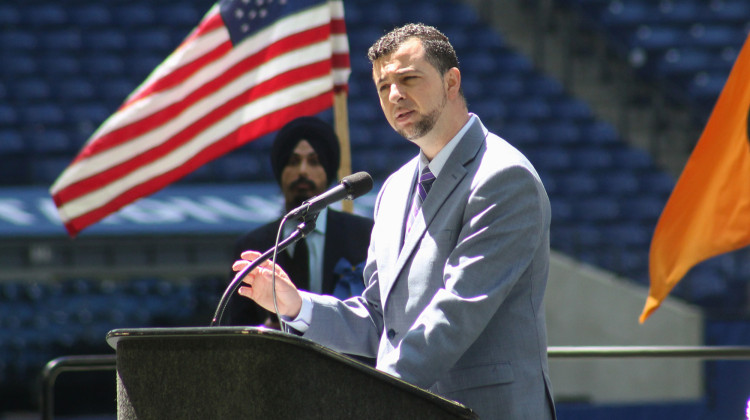
Sen. Fady Qaddoura (D-Indianapolis) said the proposed reimbursement rate could make it difficult for providers to continue care in the state.
Lauren Chapman/IPB NewsSome Indiana lawmakers raised concerns about the proposed Medicaid reimbursement rate for a common behavioral treatment for people with autism. They say it could put access at risk. The director of Indiana Medicaid formally presented the new rate at a State Budget Committee meeting Friday.
Providers say Applied Behavior Analysis therapy builds communication skills and addresses behavioral problems. The proposed Medicaid reimbursement rate for ABA therapy has been opposed by providers and parents since the initial announcement in August.
The current proposed rate from the Family and Social Services Administration is about $68 per hour. The average hourly cost of ABA therapy is $91, according to FSSA’s provider survey.
Sen. Fady Qaddoura (D-Indianapolis) said that amount could make it difficult for providers to continue care in the state.
“I have a document in front of me from one of the providers saying that if we offer it below the $76 dollar, we're going to go into crisis mode,” Qaddoura said.
Join the conversation and sign up for the Indiana Two-Way. Text "Indiana" to 73224. Your comments and questions in response to our weekly text help us find the answers you need on statewide issues, including our project Civically, Indiana.
Rep. Gregory Porter (D-Indianapolis) said FSSA's rate creates more barriers for people seeking ABA services.
“I'm very concerned that we will not meet the needs of individuals within the state of Indiana, particularly minorities and rural and suburban communities,” Porter said.
Porter is advocating for a $4 increase to the rate to help providers stay open.
The new reimbursement rate is set to go into effect on Jan. 1, 2024.
Abigail is our health reporter. Contact them at aruhman@wboi.org.
9(MDAyMzk1MzA4MDE2MjY3OTY1MjM5ZDJjYQ000))
 DONATE
DONATE








 View More Programs
View More Programs

 Support WFYI. We can't do it without you.
Support WFYI. We can't do it without you.